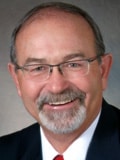
Nate Cote
It is not easy to determine the difference between a right and wrong choice in some situations. In most instances making the right decision is a non-issue because there are specific lines that should not be crossed. In other cases that line may be vague or non-existent.
We all understand that a decision is a matter of choosing among alternatives, some good and some bad. Choices from options and dilemmas, and right versus wrong, are often made as a result of one’s personal perspective and value framework, if not otherwise clearly defined.
For those of us in positions of trust, however, there is a need to understand the wide range of ethical concepts and responsibilities, to prepare ourselves to decide what is best as it pertains to the public good, and to understand what is expected of us in either legal or social terms, notwithstanding other possibilities.

Violations of the law as it relates to the person’s position of trust are unacceptable, but what if there is not a law that covers the situation? We who serve as elected officials are in positions of trust, and our decisions should not be aligned with favoritism that will better a person’s status, position or political future. The law may not even be violated in many cases.
Whether in a church, a classroom or by our parents we are taught right versus wrong, yet do we understand or condition ourselves for the real world when it comes to making responsible decisions for the public good — decisions that are legal, conscionable and acceptable within our society?
Be prepared to do the right thing
Public or elected officials need to be prepared to do the right thing regardless of political persuasion, ideology or perception. Governmental entities and laws often define what constitutes unacceptable behavior, but there is not a precisely defined rule or a guide for every situation. Ethics and doing what is right is not a voluntary action, it is mandatory for every elected, appointed or other public official. Taking an oath of office commits a public official to act ethically, morally and legally.
Public service places a person into a position of being a steward of commonwealth as opposed to a steward for oneself. Becoming an elected official comes with responsibility and accountability to provide what are the best services to the citizens in a fair and equitable way. The wealth accompanying public service is the satisfaction of contributing to the improvement to the lives of others and to society as a whole, and it should not be monetary.
An ethical decision made on one’s belief system may be an ethical dilemma for another person, something to which we need to understand. On some issues a person may place an emphasis on the greater good, while another may emphasize fairness or justice and rationalizing his or her understanding of the complex relationships of society. Regardless of one’s approach, the decision could be subject to scrutiny.
We may not agree on how to arrive at the right decision, but we must be prepared to determine that it is the best interest of the public and consensually the right thing in regard to human and civil rights and to the standards entrusted by the public. We may never agree on an issue or as to what constitutes an ethical decision based on one’s ethical compass, but we must agree that we should not violate the law or the public trust.
The question is: Are people in positions of trust prepared to make good, ethical decisions, or do they fudge a little until they are intentionally violating codes of conduct because of the lack of an adequate ethical compass and disregard for the consequences?
A choice that should not be taken lightly
Ethical conduct by officials in the public sector is a choice that should not be taken lightly. It is a responsibility of holding an office of public trust. Most elected officials, appointees and others working in government may have had previous experience only in the private sector, which has a variety of ethical practices. Some of these practices are never permissible in public service because they violate the public trust.
The nature of the public trust invested in public office to which the elected, appointed or hired means one is entrusted as steward for the public’s commonwealth. Training and knowledge is one way to avoid unethical acts from ignorance – by educating people about their responsibility to act in accordance with the ethics of public service.
If a person in a position of trust is given a donation of $2,000 with an expectation to vote a certain way or to make a decision on the questionable expenditure of public funds, is that person prepared to do the right thing, or is the temptation irresistible? The point I want to make is this: How well developed and conditioned is a person’s ethical compass as it relates to his or her position of public trust?
Making ethical decisions often requires a trained sensitivity to ethical concepts, a practiced method for exploring the ethical aspects of a decision, and a weighing of the considerations that should impact a course of action. Having an understanding of ethical decision making is essential. When practiced regularly, the method becomes so familiar that people work through it automatically without further thought. The more difficult the ethical choice the more prepared one must be.
I am currently working on legislation that would result in the design and implementation of an education/training program for public officials on ethics. Ethics training should clarify and reinforce the understanding of a person’s ethical compass. Those of us in public service should always understand and be prepared to do what is right and what is expected of us, regardless of the dilemma in which we find ourselves.
Cote is a Democratic state representative from Organ representing District 53.